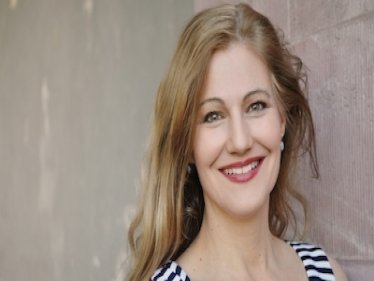Der Freischütz - Schedule, Program & Tickets
Der Freischütz
Opera in three acts (1821)
Music by Carl Maria von Weber
Libretto by Johann Friedrich Kind
Opera in concert in German
Carl Maria von Weber was a man of the theatre through and through during his whole — short — life: his father founded a travelling theatre company, and Weber was constantly on the road with his family from the age of three. It was only during the longer stops that he was able to receive instruction in piano and composition. Weber allegedly wrote his first opera having just turned twelve. From his many teachers, who included Michael Haydn and Fr. Georg Joseph Vogler, he learned various operatic styles and conventions, and it was some time before he developed his own signature style. Der Freischütz was his seventh opera, but his first great success. In 1810 he obtained an anthology of old folk tales — it was a book of ghost stories published under the pseudonym Friedrich Laun. Weber was greatly impressed by the tale Der Freischütz, but plans for a libretto did not take shape until 1817 in Dresden. Shortly after the triumphant premiere in Berlin in 1821, Weber wrote to his librettist Johann Friedrich Kind, “The marksman (Freischütz) has scored a bull’s eye”. The opera became nothing less than the epitome of Romantic opera. With tremendous melodic creativity, a rousing orchestra and motivic references Weber portrays the victory of the good over the powers of darkness. Max loves Agathe, the forester’s daughter. To be allowed to marry her he must first prove his skill as a marksman by hitting a difficult target. But lately luck has deserted Max: he keeps missing and fears ridicule as a result. In desperation he turns to Caspar, whom he believes is his friend and who lures him into the forbidding Wolf’s Glen at night to forge magic bullets: six bullets will hit the desired target but the seventh is destined for an innocent victim. At the shooting trial, the unsuspecting Max trusts in the accuracy of the seventh bullet. He shoots and Agathe falls. Miraculously, she is saved and Caspar dies in her place. Max confesses to the deception. He is not banished, but has to undergo another trial year. Only then will he be allowed to marry Agathe, even without a shooting trial
Subject to change.
Music by Carl Maria von Weber
Libretto by Johann Friedrich Kind
Opera in concert in German
Carl Maria von Weber was a man of the theatre through and through during his whole — short — life: his father founded a travelling theatre company, and Weber was constantly on the road with his family from the age of three. It was only during the longer stops that he was able to receive instruction in piano and composition. Weber allegedly wrote his first opera having just turned twelve. From his many teachers, who included Michael Haydn and Fr. Georg Joseph Vogler, he learned various operatic styles and conventions, and it was some time before he developed his own signature style. Der Freischütz was his seventh opera, but his first great success. In 1810 he obtained an anthology of old folk tales — it was a book of ghost stories published under the pseudonym Friedrich Laun. Weber was greatly impressed by the tale Der Freischütz, but plans for a libretto did not take shape until 1817 in Dresden. Shortly after the triumphant premiere in Berlin in 1821, Weber wrote to his librettist Johann Friedrich Kind, “The marksman (Freischütz) has scored a bull’s eye”. The opera became nothing less than the epitome of Romantic opera. With tremendous melodic creativity, a rousing orchestra and motivic references Weber portrays the victory of the good over the powers of darkness. Max loves Agathe, the forester’s daughter. To be allowed to marry her he must first prove his skill as a marksman by hitting a difficult target. But lately luck has deserted Max: he keeps missing and fears ridicule as a result. In desperation he turns to Caspar, whom he believes is his friend and who lures him into the forbidding Wolf’s Glen at night to forge magic bullets: six bullets will hit the desired target but the seventh is destined for an innocent victim. At the shooting trial, the unsuspecting Max trusts in the accuracy of the seventh bullet. He shoots and Agathe falls. Miraculously, she is saved and Caspar dies in her place. Max confesses to the deception. He is not banished, but has to undergo another trial year. Only then will he be allowed to marry Agathe, even without a shooting trial
Subject to change.
There are no products matching the selection.






